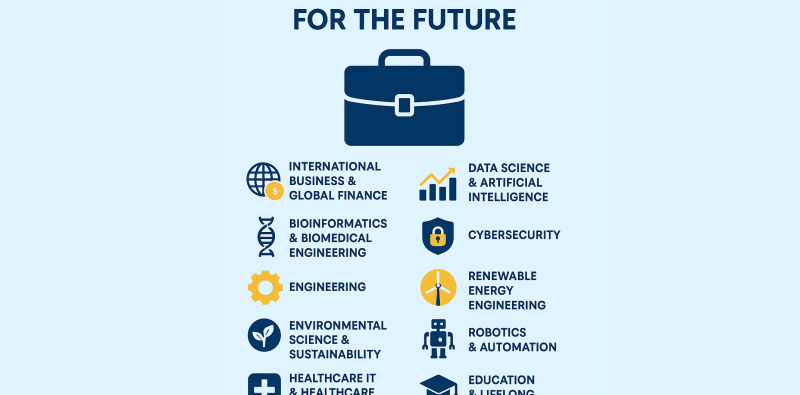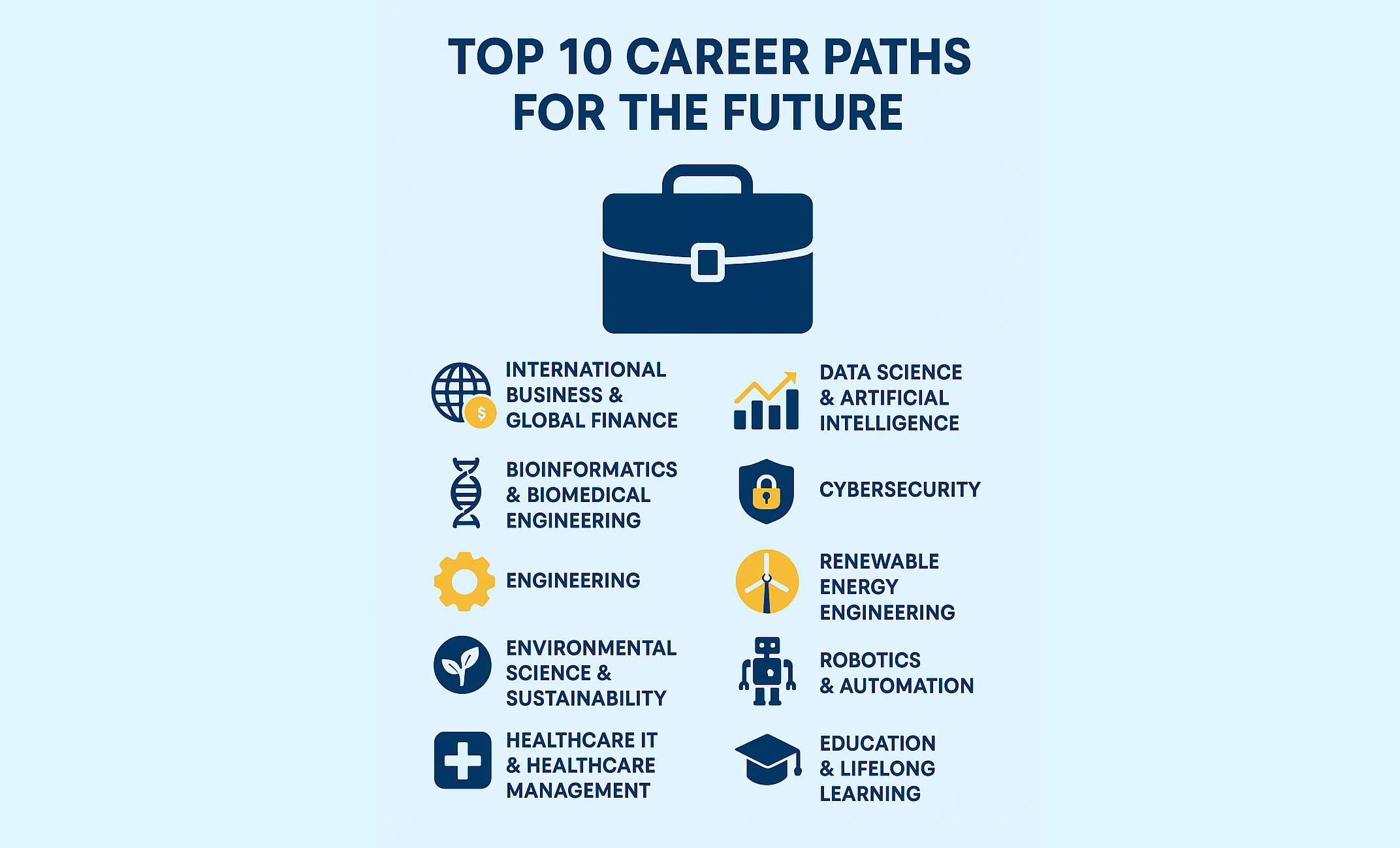

Emerging technologies are reshaping industries, making some professions obsolete while creating new opportunities that were unimaginable just a few years ago. Forward-thinking students and their parents are paying close attention to global trends, aligning education choices with the demands of tomorrow’s job market. Below are ten fields expected to offer long-term career potential in a rapidly changing world.
1. International Business and Global Finance
Globalization continues to transform commerce, increasing the demand for professionals who understand international regulations, local tax codes, and cross-border trade. Expertise in global finance or international business equips individuals to navigate complex financial systems and contribute to multinational corporations.
Getting started: Pursue a degree in international business or finance and seek study-abroad opportunities or internships. Fluency in major international languages significantly enhances employability.
2. Bioinformatics and Biomedical Engineering
Advances in technology and computational biology are driving growth in the healthcare sector. Professionals who combine biology, medicine, and engineering skills are essential for designing cutting-edge medical devices, software, and diagnostics.
Getting started: Programs in bioinformatics and biomedical engineering are demanding but provide a unique skill set highly valued in research, hospitals, and biotechnology firms.
3. Engineering Across Disciplines
Engineering remains a cornerstone of technological progress. From civil and mechanical to software and environmental engineering, these careers are consistently in demand, offering stability, high earning potential, and opportunities for innovation.
4. Environmental Science and Sustainability
Environmental challenges are among humanity’s most urgent concerns. Governments and corporations increasingly prioritize sustainability, energy efficiency, renewable energy, and pollution reduction. Graduates in these fields can drive green initiatives, develop sustainable technologies, and influence global policy.
5. Healthcare IT and Healthcare Management
A growing global population and aging societies are increasing demand for efficient healthcare systems. Professionals skilled in medical IT or healthcare administration are crucial for designing, managing, and improving healthcare services.
Getting started: Administrative and managerial roles often do not require prior clinical experience. A solid degree in healthcare management or medical IT provides the tools to launch a successful career.
6. Data Science and Artificial Intelligence
The ability to interpret large datasets and leverage AI tools is increasingly valuable across industries. Companies rely on data-driven decisions to optimize operations, enhance customer experience, and drive innovation.
7. Cybersecurity
As technology integrates further into daily life, safeguarding information becomes critical. Cybersecurity specialists protect organizations against cyberattacks, data breaches, and other digital threats, ensuring stability in an interconnected world.
8. Renewable Energy Engineering
The global shift toward renewable energy is creating a booming industry. Engineers and scientists in this field work on solar, wind, and other sustainable technologies that reduce environmental impact while supporting energy security.
9. Robotics and Automation
Automation is transforming manufacturing, logistics, and even healthcare. Expertise in robotics allows professionals to design, program, and maintain automated systems, boosting productivity and efficiency.
10. Education and Lifelong Learning Facilitation
With the rapid pace of technological change, continuous learning is essential. Professionals who develop educational programs, training systems, and digital learning platforms help societies adapt to new skills requirements, making education a forward-looking and impactful career.
Conclusion
Choosing a career in today’s world requires foresight, flexibility, and a willingness to embrace new technologies. While traditional fields remain important, emerging disciplines—spanning science, technology, sustainability, and healthcare—offer dynamic, high-demand career paths that can ensure long-term success. Those who align their education with global trends will be best positioned to thrive in the jobs of tomorrow.
